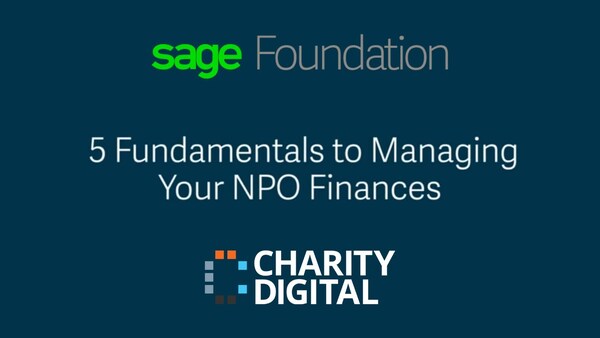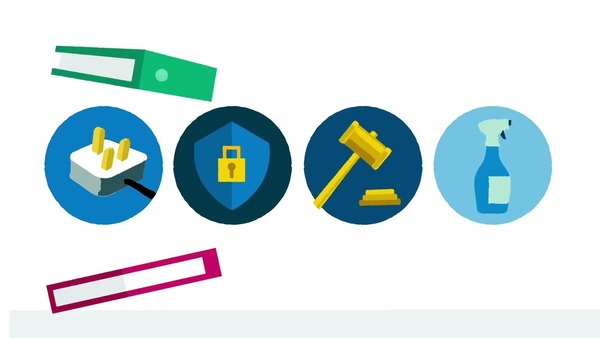Insights
INSIGHTS
All Topics
Cost-of-living crisis: Key focus areas of finance
We explore the cost-of-living crisis, explore financial sustainability, and give some advice about the areas to prioritise in the budget
According to The Big Issue, things are getting more expensive. The top of that list includes energy, rent, bills, mortgages, groceries, taxes, and travel. CAF reports that the most concerning items for charity leaders are utility bills, rent, and demand for higher wages.
Given the circumstances, we examine risks and opportunities presented by the cost-of-living crisis and offer advice for charities to improve their financial decision-making.
What to focus on in finance
Finance teams have a tough job. They produce accounts, write reports, and provide transparency to senior staff and donors. The team also has to balance ongoing commitments and falling income.
Making that connection between costs and impact on staff may be challenging. We highlight what makes a difference.
Start with a budget
Ahead of making any decisions, review the budget. The basics of drafting one includes:
- Gathering evidence: find quantitative data for spend and income
- Ask teams and assess realistically what’s needed
- Try to use an accurate gauge to make estimations
Once the data is gathered, teams can link revenue generating activities with spend.
Our top tip is the use ratios. Return on investment is a useful measure for spend on fundraising activities. Another ratio commonly used is the programme expense ratio.
The Cranfield Trust defines the programme expense ratio as the programme expenditure as a proportion of total expenditure. By using ratios, charity finance mangers can start to compare what is working well and what is not.
Keep the financial information flowing
Despite the knee-jerk reaction to cut overall spend, digitisation of data still reigns. The first issue to prioritise during cost cutting exercises is keeping on top of what is happening to the finances.
Automating financial processes makes sense of the flow of money and of any changes up or down in costs. Financial management systems take the heavy lifting off of the finance team by alleviating them from manual tasks. The strongest rationale for keeping digitisation on the books is visibility – helping analysts spot trends.
Examine the bills
Aligning with The Big Issue and CAF, look at bills. Utility bills are a good place to start.
Check if your provider has the lowest rates and whether there’s a smart meter. Both strategies will help you get better value for money.
Other big costs include internet subscription. The same strategy applies. Take a look at competitor providers. Typically, new customers receive a discount and for charities on a shoe-string budget that may move the needle. Haggle for the best deal where possible.
Next, take a look at fixed subscriptions. Newspapers, research outlets, and apps are worth scrutinising. Monthly billing periods are typically more expensive than a single, lump-sums.
Re-think office space
Going into the details on hybrid-working and premises costs is worthwhile, since many charities have plenty of experience.
At Charity Digital we see that: “The obvious benefits [of hybrid working] include, among other things, lower operating costs, lower facility costs, and better staff retention.”
Big moves have been made to support this thesis. Voluntary Service Overseas (VSO) made a strategic decision to do away with their offices. The rationale was clear. When speaking with the Third Sector, they noted that most of their staff are working from home. When the lease came due, the combination of working from home and fall income made the choice obvious.
Swapping out fixed-lease spaces, the VSO has switched to a much smaller rental space for staff who truly need it for work.
Other charities have made similar decisions, including the RSPCA and Parkinson’s UK.
Outsource what you can
Leaving it to others outside the organisation can reduce operational costs. A top tip from Paul Rubens at Charity Digital: “Charities can spend significant amounts providing their own support services which are not key to their charitable work. Outsourcing these support services can often result in big costs savings.”
Researching pro-bono services stretches the budget. Free legal advice is often given by City law firms. Free space is available by community buildings and other charities with real estate.
Another tactical way to outsource is by hiring contractors.
Focus on freelancers or temp workers. They offer services for exactly what you need. Perhaps a specific project, function or just a few days of help and no more. The added benefit is that there’s no need to pay for sick leave.
Offer help to staff
Remain empathetic to staff during the cost-of-living crisis. For finance teams, it may be prioritising staff benefit programmes and resources. Free staff lockers, local shop discounts, and travel programmes help with the bottom line and improve employee retention.
Finance teams should also prioritise mental health. Free resources include Mind and Mental Health at Work.
Christine Chiu
More on this topic
Recommended Products
Recommended Products
Our Events
Charity Digital Academy
Our courses aim, in just three hours, to enhance soft skills and hard skills, boost your knowledge of finance and artificial intelligence, and supercharge your digital capabilities. Check out some of the incredible options by clicking here.





















